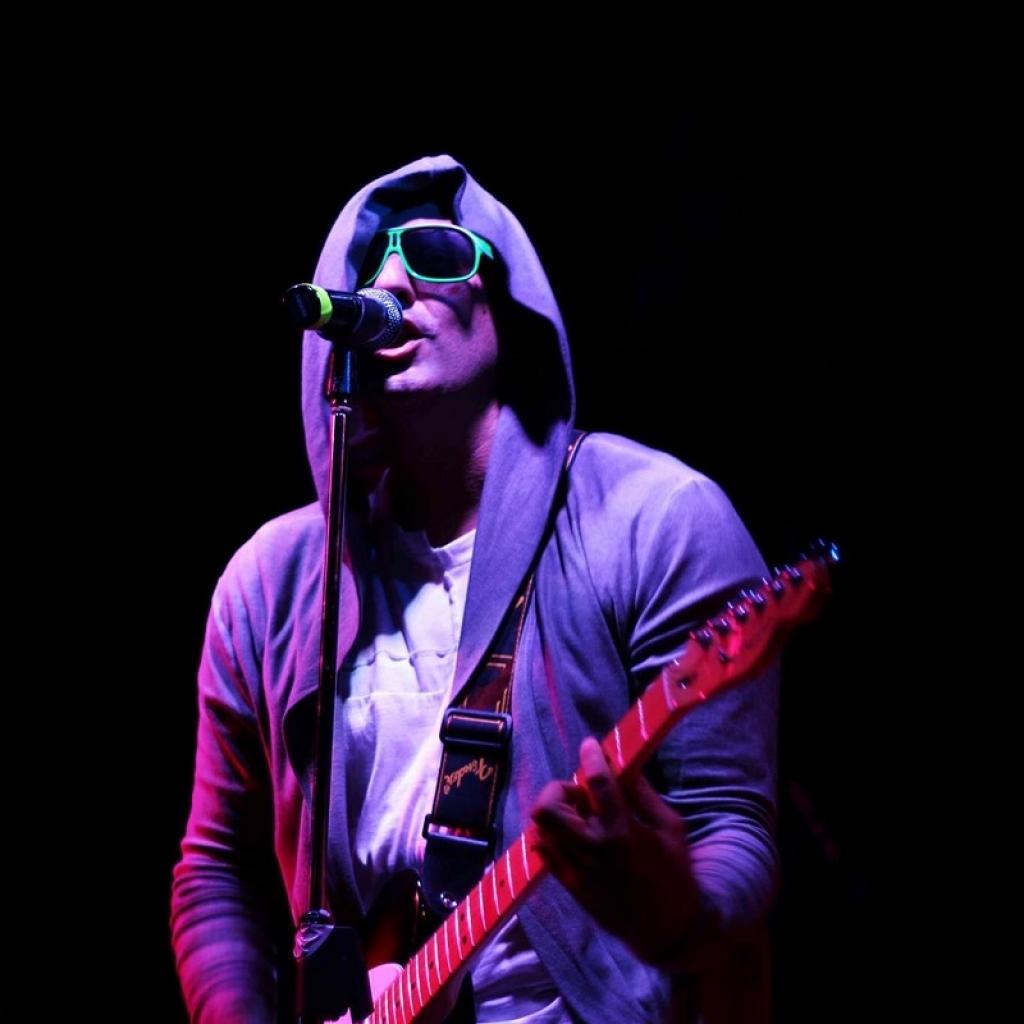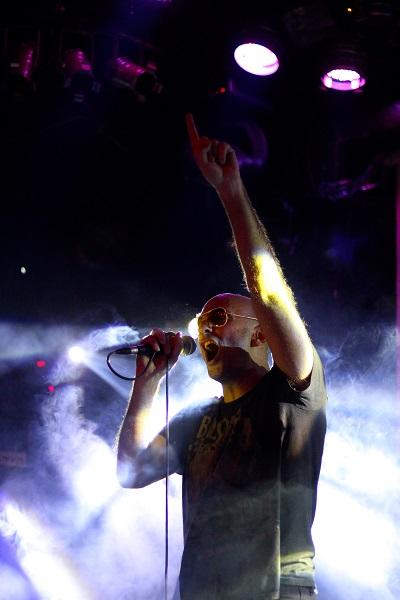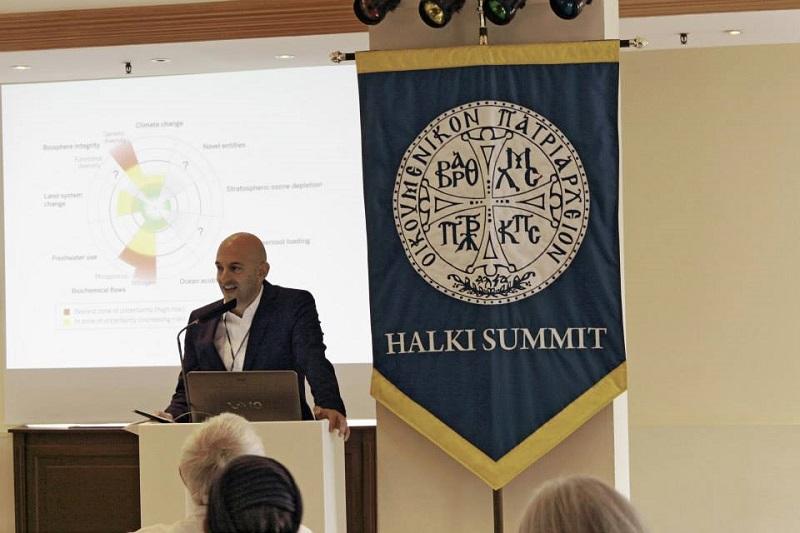Nikos Dimitriadis: ACT rocks!

Professor of World Religions at ACT, Greek ambassador of Globethics, head of the environmental campaign at the Center for Ecumenical, Missiological and Environmental Studies (CEMES), a frontman in the indie-rock band “The Gang”. Nikos Dimitriadis is a genuine performer - a "rock star" as the Huffington Post wrote.
He gives concerts for thousands of people, promotes environmental justice among young people worldwide through his music project called "Smile", and at the same time keeps his energy and spirit up for his students at ACT.
Globethics, Religion, Environmental Consciousness. And rock music. What is the common ground between these fields?
You can find common ground in themes that, at first sight, look different and then start building a relationship on them. This is how I live my life. For me it’s so natural to live with all those mentioned and even more in my everyday practice. First, they all have to do with ethics, conducts and performances.
Take for example, rock music. Rock is not a genre; is an attitude. Playing my music is an exhilarating experience. I have exactly the same feeling when I am in class teaching ethics. Singing and teaching are both performances. You give your best in front of an audience.

What are the updates and the results of your world tour? How do people respond to this a music project that carries a message?
To start with, it was a great experience. This world is so colorful and diverse and that’s its beauty. There are so many identities! People think in different ways, act differently but there is common ground that unite us all. I think this is a common, yet unwritten code of ethics. In order to understand someone’s perspective you should first understand their context. A world tour helps you realize this. The Smile World Tour does not convey a common message to all. It’s more of a suggestion to look things from a different perspective. I would say that “SMILE” it’s not a theory. It’s more of an action. It enhances you to perform, which brings us to performance again.
What has this experience offered you on a personal level? Is it useful for your teaching?
A World Tour can definitely offer you a lot. As a Historian of Religions, I experienced and materialized many things I was reading all those years during my personal research. Through World Religions one can examine the religious beliefs of persons as they develop through time and space and as we comprehend them in a framework of cultural and psychological data.
A tour offers a unique approach to those data. Interacting with people of different cultural, religious or, I’d better say, spiritual beliefs and experiences, can bring you closer to the comprehension of humanity in general through the study of sentiments and attitudes. I think this experience added value also to my teaching. The students’ comments in their evaluations of my teaching make a special reference to the fact that I use real life examples in class during my course on World Religions and this greatly facilitates their understanding of the religious traditions of several spiritual backgrounds we examine.

Can you share with us some of your methods and teaching approaches?
“Imagination is more important than knowledge” said Albert Einstein. I’m trying to light up students' imagination.
Books provide knowledge and the role of the educator is to open this window of knowledge and provide students with the tools to build their own worldview.
Something else I constantly keep in mind is that when a student fails it’s not only a student’s fault. Educators should be always alert to the fact that education and pedagogies are changing and they should try to find ways to make their courses more attractive to their students.
If I would use only one word to describe my method, I would use the word “interactive”. In class we share experiences and real life examples and we try to understand ourselves, each other and the universality and multiplicity of the various traditions.
What do you enjoy most about ACT? How would you describe it?
Being in class! When I say “class” at ACT I don’t only mean the curricular but also the co-curricular and extracurricular experiences. ACT not only provides but also encourage this way of “learning in action”.
Thessaloniki’s ACT is a crossroad of civilizations and more than any other institution in the region it offers this intercultural opportunity to our students.
If I would like to describe this teaching experience at ACT I would say that those classes are a journey of discovery both personal and of this world.
Through that journey we become more appreciative of the “experience of being human in the universe”.














